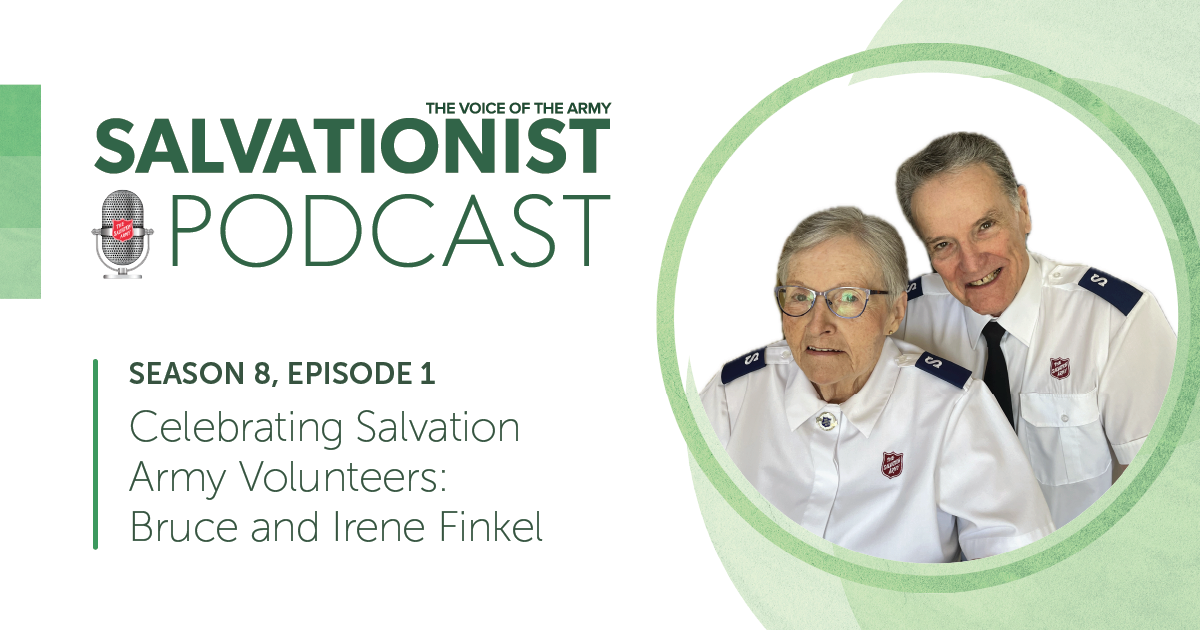As we continue our series on the foundations of a healthy corps, Major Leslie Wiseman explores leadership.
If you do a little research, you will discover that upwards of 60,000 leadership books are available on Amazon, with more than 1,000 published each year. The leadership market is saturated with information for learning and development. And yet it has also been said that for every 10 leadership books, there is one good leader.
From this I surmise that not all opinions and practices are helpful and, more importantly, that learning about leadership is much easier than leading. There are many definitions and styles of leadership. It is an art rather than a science.
I’ll be honest—I am one of the leadership market consumers. My bookshelves are lined with bestselling books from secular and spiritual, corporate and church leaders. The study of leadership fascinates me as I ponder different expressions and interpretations of the art.
With a limitless amount of information, resources and training available to us, discerning what is useful and applicable can be daunting. Yet, as leaders (officers, employees, soldiers, adherents, etc.) serving within all expressions of The Salvation Army, it is critical. To evaluate a book or resource, I use a three-step filter:
- Does what I’m learning contradict the life and leadership modelled by Jesus?
- Does it align with both organizational and personal values?
- Will it equip me to advance the mission to which I’m called?
I’m not a leadership expert. On the contrary, I am a learner who leads and coaches other learners who lead. For me, study, reflection and observation have served as a distillation process. I have come to believe that while setting a direction, moving toward a goal, empowering and collaborating are important underpinning qualities, the essence of leadership is a posture. Turning our attention here may help us re-evaluate our own leadership styles and reconsider our recruitment approach.
As Salvationists, we understand that there is no shortage of positions. This is normal and necessary for organization and governance. If we’re not careful, we can fall into the trap of believing that leadership is reserved for certain positions. That way of thinking will devalue our own leadership and may hinder the incredible opportunity we have to be influential, right where we are, with the people around us and the resources we have.
An effective leader exercises a posture of humility, learning and service. Humility includes the self-awareness to know our strengths and our growth areas. It is understanding that we do not have all the answers (or skills), nor should we. We need others. Humility prevents us from using our authority to indulge our preferences. It enables us to be in the background, in support of others. Humility offers the ability to own our mistakes. A humble leader does not think of themselves more highly than they ought to.
A posture of learning involves curiosity. An influential leader asks good questions and is open to different opinions and perspectives. Learning requires reflection. To quote American philosopher John Dewey: “We don’t learn from experience. We learn from reflecting on experience.” Reflection is an important practice for every leader, as we ask questions such as, “How did I handle that situation? What did I learn? What would I do differently next time? How did others experience me? Do I owe anyone an apology? What am I proud of?”
A posture of learning requires attentive listening. It’s a good practice to try listening more and talking less, creating space for others to feel heard and understood. This applies to anyone, beginning with those closest to us. Think of a time when you felt heard and understood. What was that experience like? We can show we value people by listening well.
In sync with humility and learning is the posture of service. Leadership is never about the leader; it is about helping others become better. Service is making a meaningful difference in the lives of others. A servant leader acknowledges the work of others, appreciates their contribution, accommodates their needs and provides autonomy.
The posture of leadership highlights the importance of character. Character always trumps competency. Competencies and skills can be learned, but character is who you are. As Christ-followers, our character is formed and nourished through abiding in him, the true vine. Staying close to Jesus in this way will result in fruitful and flourishing leadership, influencing others toward transformational growth.
Major Leslie Wiseman is the corps mission secretary for the Canada and Bermuda Territory.
Photo: ibravery/stock.Adobe.com
This story is from:










Leave a Comment